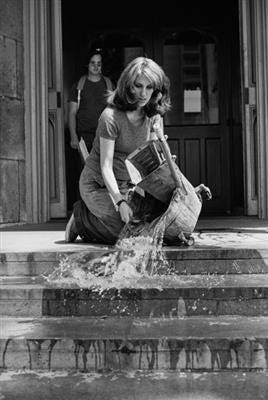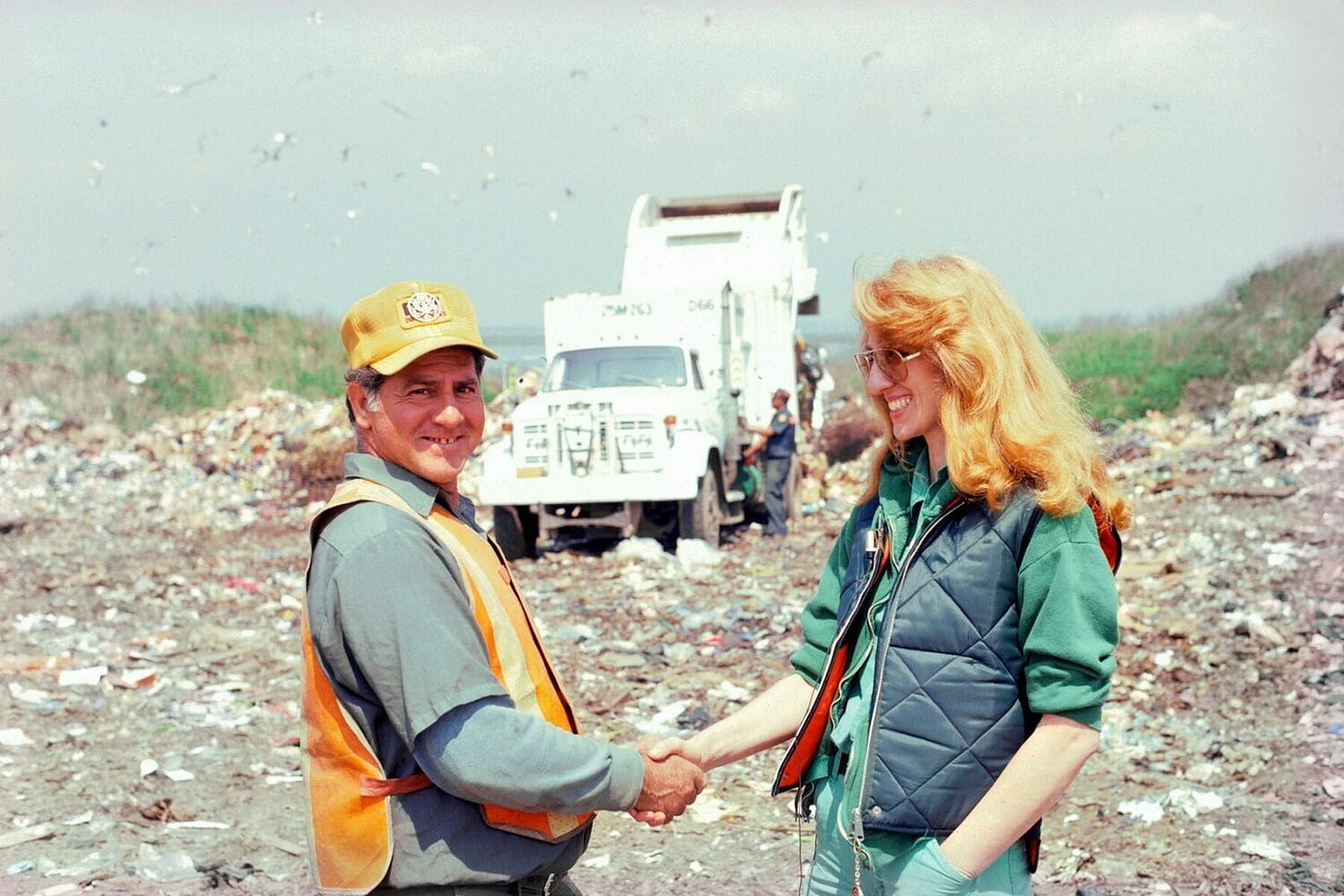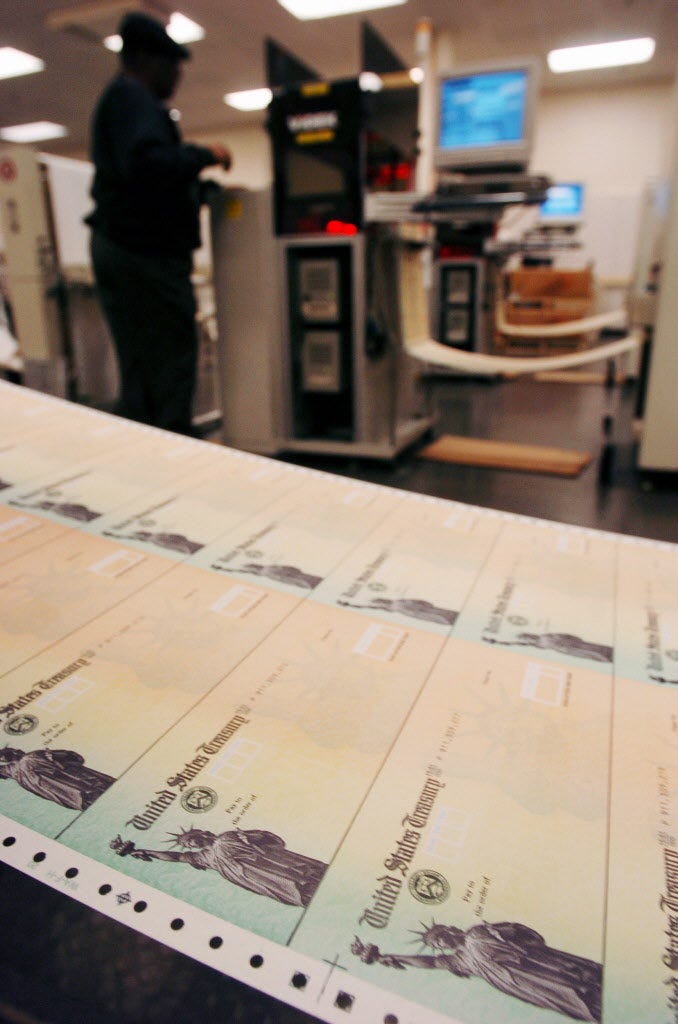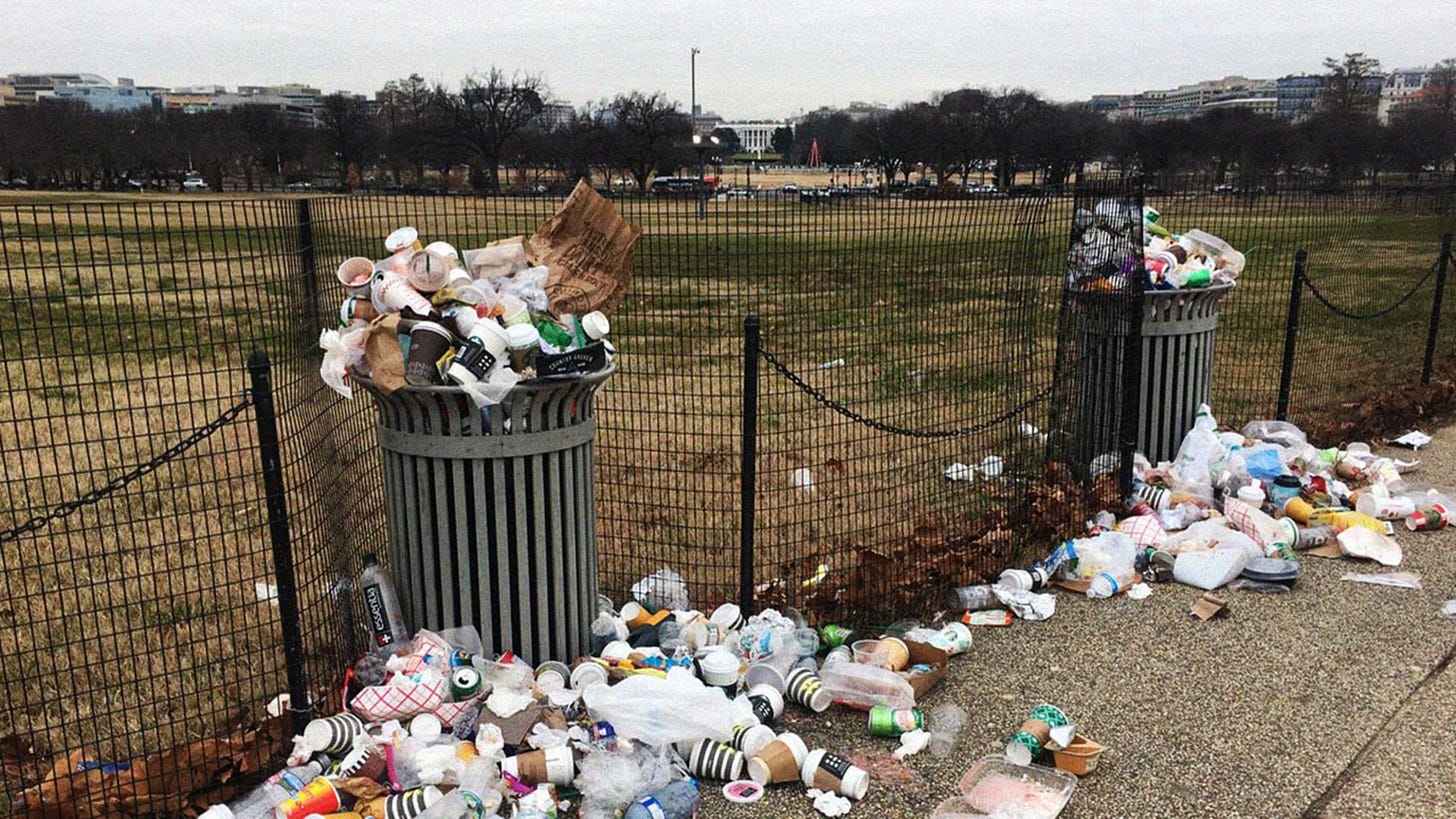In 2016, Amrita and I, along with our friend J.R., took a trip to the Queens Museum to see a special exhibition called, “Mierle Laderman Ukeles: Maintenance Art.” I still think of this show.
In 1977, Ukeles became the unsalaried Artist-in-Residence at New York’s Department of Sanitation. She documented the work it takes to maintain a city like New York City. It was fascinating and important work.

The built environment affects the way we live, think, and relate to one another. The infrastructure of cities undergirds everything. Ukeles’s work with the Sanitation Department highlighted the value of maintenance as an almost-sacred act of respect and care. Her work was not about building up or tearing down, but instead, about the labor of continued nurturance, of caring for a city and its infrastructure throughout its lifecycle. This often overlooked, and inadequately planned-for, aspect of building and city planning has monumental effects on quality of life issues. We may be able to build beautiful things, but it’s in the maintenance of those things that we guarantee the full rewards of our investment.
I often think of Maintenance Art when I am cleaning the house – something that, given the space and time, I actually enjoy. Tidying feels like an act of service to myself and to the loved ones that I share space with. Restoring a space to its intended state creates the feeling in me of a new beginning. It’s a reset and an opportunity. It’s a feeling of peace. When I feel like I have nothing to wear, I’ll wash, iron, and fold the things that I have, restoring my closet to pristine condition. Then, behold, I find something to wear. I see my own things in a new, cared-for light.

The hardest part about valuing maintenance work is that when done well, it is almost invisible. This is one reason for burnout in the working world. The invisible tasks that are fundamental to the business of business are forgotten and undervalued; out of sight, out of mind. We’re often asked to do more at work because the boss doesn’t fully appreciate what we are already doing. This is also a reason that some relationships falter and marriages collapse; the invisible work that one partner puts into keeping life together finally reaches a breaking point. Ukeles’s initial inspiration was the thankless nature of women’s domestic labor; drawing parallels between household maintenance and public maintenance.
I’ve been reminded about all of this lately because of the state of our country. Many of us have watched with surprise as once-venerated federal institutions have been gutted, shuttered, and hamstrung to the point of paralysis. I don’t advocate to save unwieldy institutions just because Donald Trump wants to annihilate them – but I can’t help but notice something about the two men, Donald Trump and Elon Musk, who are at the helm of the decision ship. They are both builders. Their expertise, if one chooses to see it that way, is in creating new things – new buildings, new businesses. And the idea of building something new often means destroying something old; an old system, an old idea, an old institution.

While Trump and Musk seem enamored with the idea of destruction in the name of building something new and unnamed, they do not appear interested in the art and science of maintenance; The day-to-day, week-to-week, decade-to-decade, consistent work that underpins our national sense of safety and security. It’s thrilling to start something new. It can feel energizing to fight for some kind of change and advocate for some warped sense of progress. It can feel mundane to just keep things going.
From dusting our nuclear stockpile, to changing the ink on social security check printing machines, there is governmental work that has been done so consistently and so well that we've forgotten that someone is actually doing these things. We became accustomed to trusting that the prosaic tasks of the government were being handled with consistent care. The trust that we put into our institutions was born from the dedication of many people to do their jobs, quietly and consistently. Once people began to lose trust in the government, particularly our politicians, they misplaced their fear and distrust onto those who perform maintenance, rather than those who enact exploitation.
Time will tell what further damage Trump has now wrought on our collective sense of safety and trust. Time will tell if the actions taken today will sow the seeds of discontent to the point where we rise in revolt. For a time, institutions will cobble together internal coalitions that will move necessary work forward. The proverbial paint will begin to peel and the pipes will leak a bit, but the roof won’t collapse tomorrow. Without proper maintenance though, there will come a day when the floors cave in and the walls fall down. That will be a sad day. And the fix will be expensive.
As with most things in life, the answer to America’s biggest problems lie in the most unsexy of ideas: balance. Until we greet disruption with maintenance and progress with preservation, there will be no lasting way forward that works in the best interest of the many. Some of us are trailblazers and rabble-rousers, lighting fires for revolution. Others enable change and growth in quiet, steady ways that draw less attention, but are just as important and consequential. We all play equally important roles. Ukeles recognized this and summed it up well with a question she posed in her 1969 Manifesto; “After the revolution, who is going to pick up the garbage in the morning?”
For now though, our best approach to these brutish attacks on our government – some of which seem motivated by nothing more than spite – may be to throw tarps over gaping holes, sheets over dusty furniture, and hold on until a maintenance person can fix it all up again. Hopefully, sooner rather than later.







I, too, feel immense satisfaction in order and cleanliness. At least, when it is I who have made the mess. Like many folks, I suspect, it is the cleaning up of messes made by others that is often annoying. ;) There is a great spiritual quality to doing the work you speak of, the maintenance that often goes unnoticed and unacknowledged. And herein lies the great loss: the loss of soul in our county, the loss of service to others not for personal gain but simply because it is the right thing to do and in the end benefits us all.
I wasn’t aware of the photo series you mentioned. How wonderful 💙